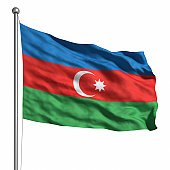The speech to Germany's foreign policy community at Berlin's DGAP by Azerbaijan's Foreign Minister Elmar Mammadyarov contained overt and hidden messages. His arguments delivered to the German audience revolved around two quilting points – economy and security. He started with something that was meant to prove Azerbaijan’s inclusion in the Western normative order. He referred with due reverence to international ratings, acknowledging the economic success of Azerbaijan (according to the Davos Economic Forum, Standard & Poor’s, Moody’s), to European educational standards (in his words: the Bologna process was helpful in bringing thousands of Azeri students to European Universities), and, of course, the energy partnership with Europe (in particular, with the French company Total). In full compliance with the European normative tenets, he assumed that it is not governments but energy companies that have to decide on the pipeline routes to transport gas from Azerbaijan to Europe, and on prices as well.
Another important nodal point of Mammadyarov’s speech was security – a sphere that was meant to strongly attach Azerbaijan to the Euro-Atlantic world. The railroad-to-be from Azerbaijan to Turkey through Georgia was presented as the shortest way from Afghanistan to one of the NATO member states, which underscores its strategic meaning.
This was a good point to proceed to the core security threat for Azerbaijan – “Armenian soldiers in our territory” that remain deployed in Nagorno-Karabakh in spite of UN resolutions. At this point, Mammadyarov did not try to look too pro-European. In his words: the EU has to be “more honest and recognize the inviolability of state borders" as part of the Helsinki Final Act’s legacy.
In fact, it was this security prism through which Mammadyarov responded to a couple of the most inconvenient questions from the skeptical part of the audience. Polemicizing with a Human Rights Watch representative, the Azeri Foreign Minister claimed that his government has its own vision of human rights exactly because of threats from “some of our neighbors.” The same logic governed his response to the question of why Ramil Safarov (an Azeri officer who was convicted by Hungarian court for murder of his Armenian colleague in Budapest and then extradited to Azerbaijan) was immediately pardoned in his home country by presidential decree. Mammadyarov’s explanation was two-fold. On the one hand, he explained the worldwide interest in this case by the ability of the Armenian diaspora “to work with the media.” Yet on the other hand, he claimed that “the real,” core reason of this incident was – again – the presence of Armenian forces in Nagorno-Karabakh. “Of course, he committed a criminal act and was punished for this. However, the whole case should not be taken out of the context that boils down to the matter of occupation. It shows that one tragedy provokes other conflicts.”
After this philippic, the Foreign Minister obviously wanted to finish the debate on the optimistic note. He refused to give assessments to the role of Russia in the Caucasus, and added: “peace will ultimately come, no doubt, for the sake of all the region.” In this context, his unexpected reference to the reunification of Germany was not simply a friendly farewell gesture to the Berlin audience: in Mammadyarov’s words, this was a good example of sound economic considerations trumping political conflicts. If this historical parallel was something more than a mere historical excursus, it may mean that Azeri diplomacy is eager to somehow use its economic trump cards to return Nagorno-Karabakh. It remains to be seen whether these trumps would be used in bargaining games with the EU, Russia or, perhaps, Armenia.
Andrey Makarychev is a Guest Professor at the Free University of Berlin, blogging for PONARS Eurasia on the Russia-EU neighborhood.










